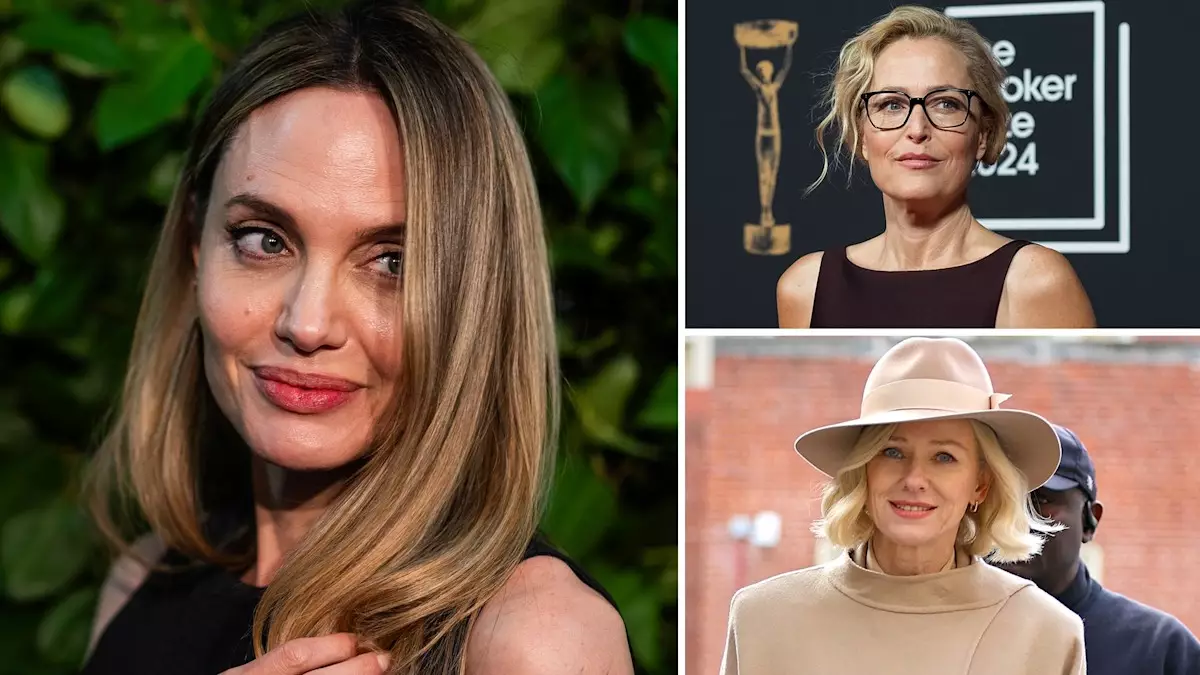For far too long, the term “menopause” has evoked a sense of embarrassment and stigma, particularly in the glitzy world of Hollywood. Celebrities, often keenly conscious of their appearances and the relentless pressure of societal expectations, have historically shunned discussions about this natural life phase. The portrayal of aging in the film industry has perpetuated the misconception that this transition marks the end of vitality and desirability. Consequently, this perception has mirrored society at large, leading many women to keep their experiences under wraps. However, recent shifts are challenging this norm and encouraging a broader dialogue.
Thanks in part to pioneering studies like the one conducted by Oova, the awareness surrounding menopause is on the rise. In a groundbreaking study involving 700 women from all across the United States, Oova uncovered that a noteworthy 25% reported experiencing perimenopausal symptoms before they even reached 35. These figures are startling and indicative of a widespread lack of readiness for such profound bodily changes. Such data highlights the urgent need for women to receive support and information about menopause earlier than ever, paving the way for more informed and empowered conversations about this inevitable life transition.
Among the brave voices bringing attention to their early menopause experiences is Australian actress Naomi Watts. At just 36, she began to notice the disruptive symptoms of perimenopause, including mood swings and migraines. Watts’s recent literary endeavor, titled *Dare I Say It, Everything I Wish I’d Known About Menopause*, encapsulates her journey and shares the lessons she learned along the way. Her candid acknowledgment of the feelings of chaos and disorientation that menopause provoked illustrates the often-overlooked emotional impact of this transition. Through her narrative, Watts not only seeks to illuminate her personal struggles but also strives to provide comfort and solidarity for countless women grappling with similar challenges.
Community and Connection through Shared Experiences
Similarly, actress Gillian Anderson found herself disoriented during her own early menopausal journey. After confiding in friends about her bewildering emotional shifts, she quickly learned the connection to her hormonal changes. The exchange she had with her close confidants emphasized the importance of community and support during such a tumultuous life stage. Anderson’s newfound perspective is a powerful reminder that open dialogue about menopause can help destigmatize the experience and foster connections among women.
Both Watts and Anderson are amplifying the call to action for more open discussions and less shame surrounding menopause. Anderson herself posits, “How wonderful would it be if we could get to a place where we are able to have these conversations openly and without shame?” Her sentiment suggests that acknowledging menopause as a normal part of life can allow women to navigate their journeys with greater ease and confidence.
The voices of influential women magnify an essential cultural shift, one that recognizes menopause not as an ending, but as a new chapter. This perspective aligns with the sentiments expressed by both Watts and Anderson, who believe that menopause should be acknowledged — perhaps even celebrated — as a rite of passage for women. The acknowledgment of this transition as a natural phenomenon can help dispel damaging societal narratives that frame aging as something to be feared or hidden.
Moreover, Angelina Jolie’s candid discussions about her own experiences with menopause have undoubtedly contributed to this evolving narrative. By challenging the stigma associated with aging and menopause, she inspires many to embrace the transition and reject the commonly held belief that aging equates to decline.
As discussion surrounding menopause continues to break the surface, it’s crucial for both women and men to approach the topic with understanding and compassion. The work being done by figures like Naomi Watts, Gillian Anderson, and Angelina Jolie paves the way for a future where menopause is not only acknowledged but celebrated. It is time to replace whispers with conversations, allowing women to feel empowered rather than isolated. In doing so, we can foster a culture that embraces every stage of life, recognizing that with every struggle comes an opportunity for growth and understanding.

